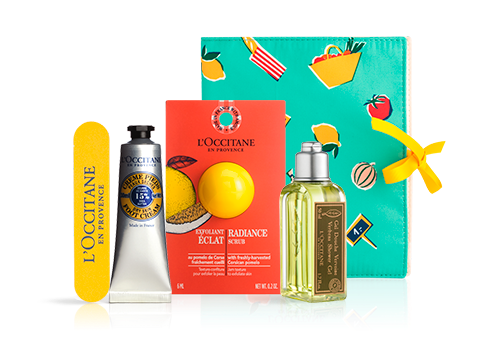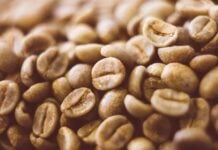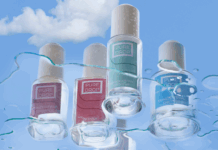Veeva, a company specializing in quality and regulatory affairs for industry players, was asked by L'Occitane, a family-owned group with international influence that manufactures and markets cosmetics and well-being products based on natural ingredients. The objective was to accelerate the analysis of essential issues such as the elimination of plastic, the recycling of packaging and new uses for cosmetics.
It's no secret that the Covid-19 health crisis has reshuffled the deck for many industries. As far as the cosmetics sector is concerned, health concerns have seen the trend towards healthy, but also ethical, organic and transparent products - already in vogue before - soar. All these values are supported by L'Occitane en Provence.
"L'Occitane is more than ever a committed brand, explains David Bayard, the group's packaging technical development director. Our first stores were already equipped with deposit systems that allowed the collection of glass packaging. Our commitment to protecting nature and reducing our environmental footprint is natural..."
A committed group
The L'Occitane group is one of the world leaders in the market of cosmetics based on natural and organic ingredients. It stands out for the diversity and abundance of its offer, and operates under six different brands, including the historic L'Occitane en Provence, but also Melvita, Erborian, L'Occitane au Brésil, LimeLife and Elemis. Today, the group has more than 3,400 points of sale, including more than 1,600 directly operated stores.
Since 1997, the group has extended its territorial anchorage to 90 countries, relying on biosystems - that is to say, virtuous ecosystems, both natural and human. L'Occitane is a pioneer of "multi-local": this approach, nourished by an entrepreneurial spirit, is highly creative of economic, environmental and societal value for all the territories where the group is invested.
"Faced with new societal challenges, particularly the notion of sustainable development, which has become increasingly important in recent years, we have been able to be bold and evolve our strategy while remaining in line with our fundamental principles, explains David Bayard. We have made some aggressive commitments to reduce our footprint, such as completely eliminating non-recycled plastic from our packaging, and producing our packaging exclusively from recycled materials by 2025. We are also committed to giving a second life to all components that are not locally recyclable. This has been a real focus for us over the past three years."
As a signatory of the Ellen McArthur Foundation in favor of the circular economy, following the example of a large number of leading companies in all sectors, the group's initiatives in this direction are systematically made public. Some of them, such as the recent launch of the first recycled aluminum tube, or the generalization of the eco-refill system, have contributed to a positive evolution of L'Occitane's environmental impact.
Time trial and regulatory obstacle course
"But these initiatives have a downside, continues David Bayard. There are many constraints, particularly of a regulatory nature. The development of new products, such as the solid shampoos and conditioners that we will soon be launching, or new distribution methods such as in-store filling of eau de toilette bottles, give rise to various complications, linked for example to bacteria. However, our fundamental mission as a producer is to guarantee zero risk for the health of the consumer. No player can afford to compromise on this issue of compliance.
A real marathon for the man in charge of the continuous optimization of packaging at L'Occitane. " We have to move a lot of things. When we come out with a new recycled aluminum package, to use that example, because we're always looking for a sustainable transformation and a long-term vision, we have to apply that to all of our lines, all over the world, while taking into account pre-existing inventory. This necessarily takes a considerable amount of time."
An exponential mosaic of indicators
In order to monitor its progress, the teams at work within the group must manipulate a very large amount of data. What percentage of a given material goes where, what is the waste rate for a given product, etc.; the indicators necessary for the company's transformation have multiplied as it has evolved, making them extremely complicated to manage. This is why the need to centralize and manage this data has become an imperative.
"In our quest for precision and speed of access to information, we looked for an editor who could help us obtain more rigor and work more easily with the data," says David Bayard.
Objective: rapid implementation to meet the brand's commitments
April 2019. Looking for a tool that was easy for teams to use, and that could be made operational quickly to meet its commitments, L'Occitane contacted several vendors. That's when Veeva, a global specialist in modernizing production processes - quality, regulatory, marketing - for industry players, and its RegulatoryOne solution came into the picture.
"We were already working with Veeva to improve our performance in terms of product quality assurance, but Veeva's people weren't necessarily going to take over the regulatory side of our business, says David Bayard. What made the difference was Veeva's ability to identify our needs beforehand and adapt their solution. A full-scale test phase - or POC - then quickly confirmed that they were able to meet them and make us more agile."
Change of dimension but a lasting course maintained
From now on, L'Occitane's teams are able to evaluate their results much better than before. "Where it used to take us four full weeks to observe the behavior of about ten indicators, we now have more than fifty evaluated in just two days! This has enabled us to move from an annual monitoring rhythm to a quarterly rhythm, in addition to refining the data and multiplying these indicators.David Bayard, whose initiative has been elected as the group's major project for the year 2020, is very pleased. As the validation circuits are increasingly well controlled, the management of our production as a whole is made easier and more fluid. In a word: accelerated. The initial objectives have therefore been largely achieved.
In total, nearly 70 internal users of the company benefit from Veeva's solution for their daily activities. The L'Occitane en Provence brand is the only one concerned at this time, but demonstrations are taking place in several other entities that should follow suit.
"In addition, there is talk of opening up RegulatoryOne access to suppliers, to enable them to enter their data directly into the system. This digital collaboration on all data and documents will bring more readability, information security and time savings for all; the client/supplier relationship will be enhanced, concludes David Bayard. This will allow us to be even more agile. We expect to add a dozen suppliers to the process in the first quarter of this year.








